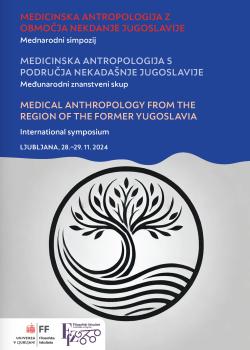Medical anthropology from the region of the former Yugoslavia: International symposium
Keywords:
public health, public healthcare, birth, postnatal care, communication in healthcare institutions, COVID-19 pandemicSynopsis
The development of medical anthropology in the Balkans and specifically in the region of the former Yugoslavia has evolved uniquely in response to the region’s socio-political transformations, that have characterized the post-socialist period. Early on, Balkan medical anthropology was influenced by the legacy of social medicine, the principle of universally accessible healthcare, a staple of the socialist period spanning fifty years, which emphasized health as a social right and examined how cultural, economic, and political contexts shape healthcare access and individual well-being. With the fall of socialism, this field adapted to investigate new issues arising from rapid privatization, healthcare inequalities, and the pluralization of medical practices. Scholars increasingly analyzed the tensions between traditional healing practices and modern biomedical systems, as well as the effects of healthcare reforms and economic disparities on health outcomes. Despite the influence of the theoretical frameworks of Western anthropology, medical anthropology in the Balkans has maintained a distinct approaches, focusing on issues of accessibility and equity while also addressing the unique cultural dynamics that shape health-seeking behaviors in the region.
Downloads

Downloads
Published
Categories
License

This work is licensed under a Creative Commons Attribution-ShareAlike 4.0 International License.

